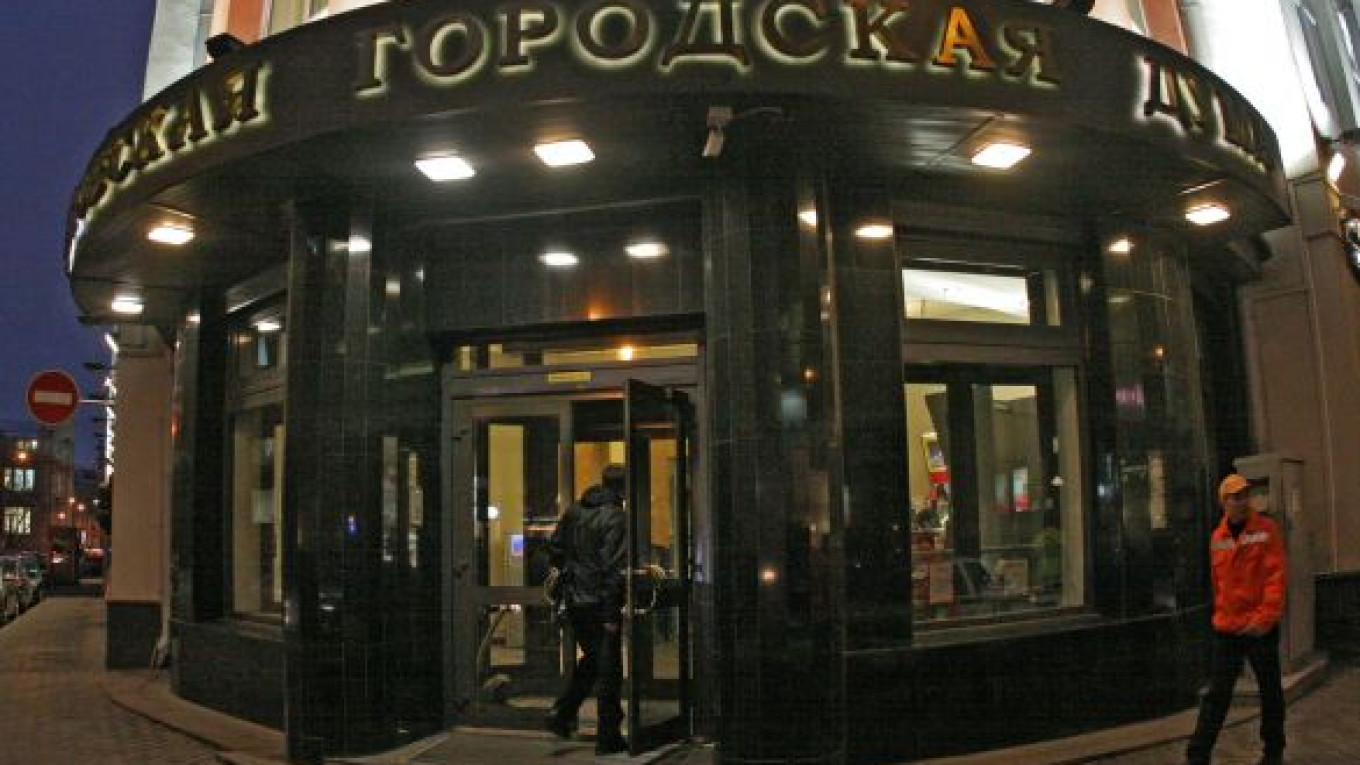The City Duma on Wednesday gave its final approval for mayoral elections to be reinstated and for independent candidates to run.
But there's a catch.
All candidates would need to collect signatures from 6 percent of the municipal deputies in three-quarters of the city's districts.
That hurdle would block every willing candidate except those from the ruling United Russia party, some politicians say.
"This is not democracy, not a return to elections, but an attempt to just pander to the public's demands," Andrei Klychkov, head of the Communist faction in the Duma, told The Moscow Times.
"The concentration of deputies from this or that party per district shows that we — let alone independents — will have trouble collecting the signatures," Klychkov said.
The Communist faction voted against the legislation but supported a motion to reduce the number of signatures from 10 to 6 percent.
The legislation still needs to be signed by Mayor Sergei Sobyanin to enter into force.
Maxim Katz, a deputy from the Shchukino district, said it was "impossible" for an independent to collect the needed signatures.
"In about 60 percent of the city's municipal offices, there are either none or only one or two independent deputies" who would provide their signatures, Katz told The Moscow Times.
The next mayoral election could take place in 2015.
The only candidate who has announced his desire to run is Kremlin-friendly billionaire Mikhail Prokhorov.
The legislation, two bills proposed by United Russia in late May, originally permitted only candidates nominated by a political party to run for mayor.
It also required signatures from 10 percent of the municipal deputies in three-quarters of the districts.
But following criticism by opposition politicians, Sobyanin said independents should be allowed to run and reduced the number of signatures to 6 percent.
The legislation is seen as a continuation of former President Dmitry Medvedev's drive to liberalize the nation's political arena.
Taking into account Sobyanin's adjustments, the Duma on Wednesday approved the bills, introduced as amendments to the City Charter and Elections Code.
The bill's sponsor, Tatyana Portnova of United Russia, said Wednesday that Sobyanin's adjustments "create a more democratic basis" for mayoral elections, according to a on the City Duma's website.
The legislation would also allow the City Duma to call a popular vote to recall the mayor.
Previous laws regulating mayoral elections, which were abolished in 2004, allowed only the president to fire the mayor or accept his or her voluntary resignation.
But a recall election would require the support of more than half of the city's residents and would not be allowed during the mayor's first year in office.
The legislation would also lower the bar for a party to enter the legislature from 7 to 5 percent of the total vote, and would lessen the required number of voters' signatures from 1 to 0.5 percent.
Moscow's city limits will expand considerably on July 1, annexing from the region two large administrative districts in the southwest.
The number of municipal districts, into which administrative districts are divided, will then grow from 125 to 146, and the number of municipal deputies from to 1,560 to about 1,800.
A Message from The Moscow Times:
Dear readers,
We are facing unprecedented challenges. Russia's Prosecutor General's Office has designated The Moscow Times as an "undesirable" organization, criminalizing our work and putting our staff at risk of prosecution. This follows our earlier unjust labeling as a "foreign agent."
These actions are direct attempts to silence independent journalism in Russia. The authorities claim our work "discredits the decisions of the Russian leadership." We see things differently: we strive to provide accurate, unbiased reporting on Russia.
We, the journalists of The Moscow Times, refuse to be silenced. But to continue our work, we need your help.
Your support, no matter how small, makes a world of difference. If you can, please support us monthly starting from just $2. It's quick to set up, and every contribution makes a significant impact.
By supporting The Moscow Times, you're defending open, independent journalism in the face of repression. Thank you for standing with us.
Remind me later.


